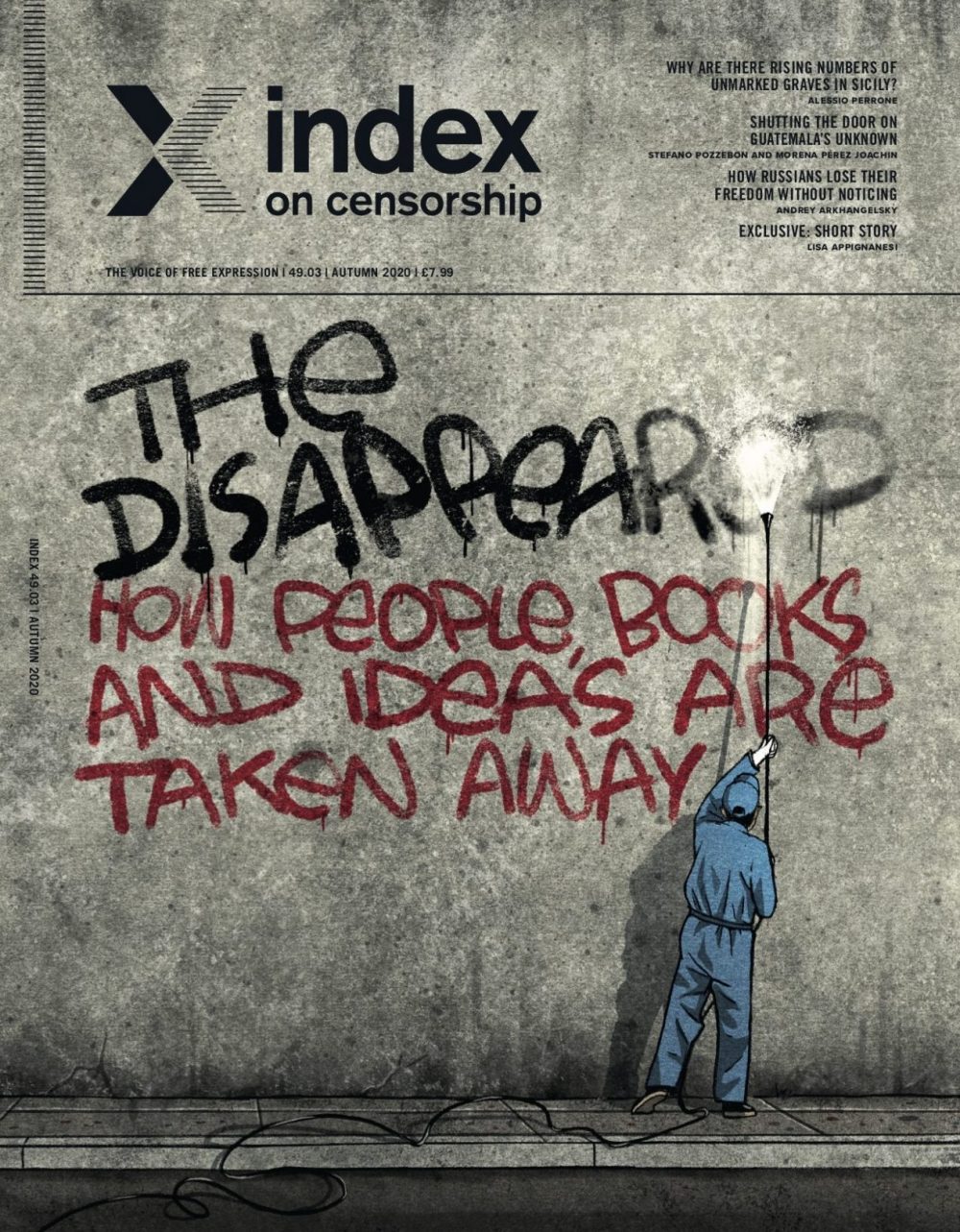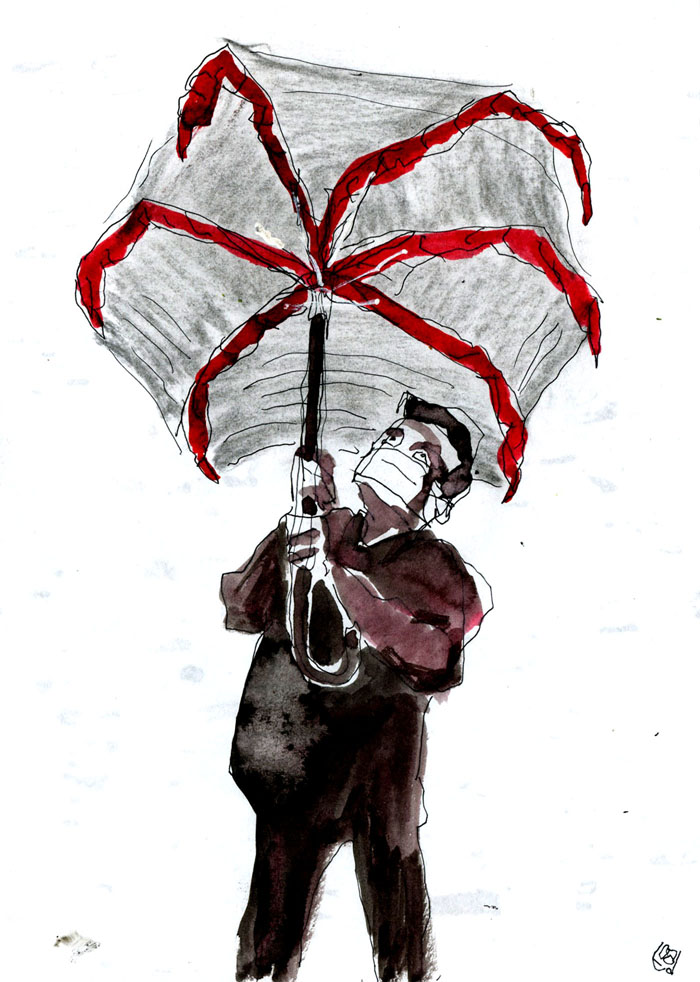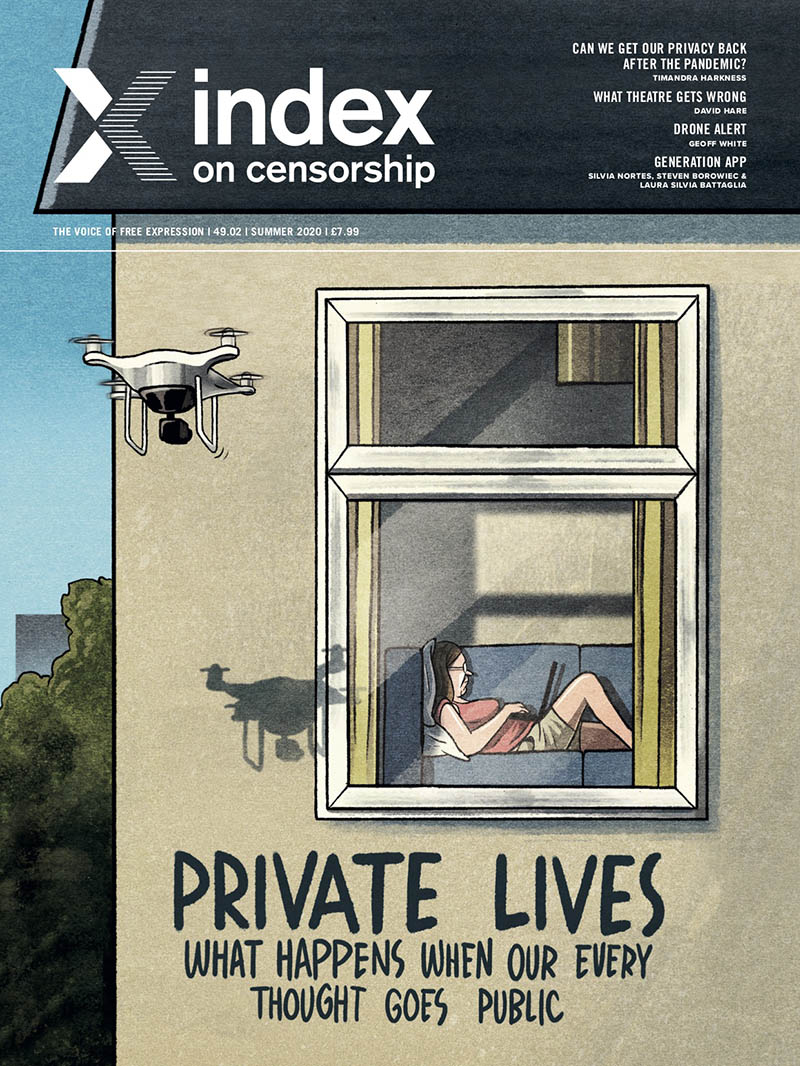Volume 49.03 Autumn 2020


Volume 49.03 Autumn 2020

The signatories to a letter in Harpers magazine about open debate are familiar to Index magazine

A reading list of articles from the Index archive when Hongkongers were wondering what the handover from Britain to China would mean

How much do you actually know about tracking apps after months of reading about them? Take our quiz and see

Our reporters in Spain, Italy and South Korea talk to citizens about the free speech implications of using Covid apps

Why don’t we learn that censorship and lack of trust in society puts us all at risk, particularly in times of crisis, asks Rachael Jolley in the summer 2020 issue of Index on Censorship magazine

Technology presenter Timandra Harkness argues that we need to get our privacy back at the end of the crisis

The spring 2020 Index on Censorship magazine podcast with Mary Ellen Klas, Moa Petersén and Noelle Mateer discusses surveillance in China, the Swedish trend to put microchips under the skin and the worsening media environment in the USA as a result of coronavirus

The summer 2020 issue of the magazine looks at the different ways in which we are giving away our privacy as we try to tackle Covid-19

ust how much of our privacy might we give away – accidentally, on purpose or through force – in the battle against Covid-19? This is the question we pose in the Index on Censorship summer 2020 magazine. Tech journalist Geoff White looks at how drones are hovering overhead around the world, from China to the UK, to make sure we are abiding by quarantine and physical distancing. Just how up close and personal can they get? Less technical but just as sinister, Issa Sikiti da Silva reports from Uganda on government spies that are doing the same job as the drones, only they seem to be targeting political opposition. Meanwhile, people around the world are being encouraged to download contact tracing apps. That might be ok when the app has safeguarded privacy, but more often than not what is happening to data is not being spelt out, something Indian journalists are worried about in terms of their safety and that of their contacts, as Indian journalist Somak Ghoshal writes. And in the case of Colombia, Stephen Woodman highlights that the apps are easy for hackers to access. But when we’re in the home things don’t seem much better, as Adam Aiken argues in his article looking at the privacy issues that blight Zoom.
A quarterly journal set up in 1972, Index on Censorship magazine has published oppressed writers and refused to be silenced across hundreds of issues.
The brainchild of the poet Stephen Spender, and translator Michael Scammell, the magazine’s very first issue included a never-before-published poem, written while serving a sentence in a labour camp, by the Soviet dissident Aleksandr Solzhenitsyn, who went on to win a Nobel prize later that year.
The magazine continued to be a thorn in the side of Soviet censors, but its scope was far wider. From the beginning, Index declared its mission to stand up for free expression as a fundamental human right for people everywhere – it was particularly vocal in its coverage of the oppressive military regimes of southern Europe and Latin America but was also clear that freedom of expression was not only a problem in faraway dictatorships. The winter 1979 issue, for example, reported on a controversy in the United States in which the Public Broadcasting Service had heavily edited a documentary about racism in Britain and then gone to court attempting to prevent screenings of the original version. Learn more.